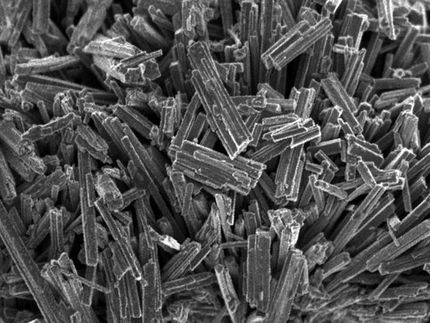Catalysts for heavy oil extraction developed at Kazan University
The catalysts speed up heavy oil extraction under the conditions of in-situ combustion
Advertisement
Projected heavy oil and viscous oil reserves in Russia are up to 40 - 50 billion barrels and a significant portion of that volume lies within Tatarstan. Heavy oil extraction warrants special technological processes, and research in that direction is currently becoming the center of attention in heavy oil-rich countries (USA, Canada, Venezuela, Russia).
Senior Researcher at the Interbedding Combustion Lab Andrey Galukhin speaks about the research:
"Calorimetric experiments show that crude oil with higher saturate content and low resin fraction has higher heating value. Additionally, the crude oils undergo two major transitions when subjected to an oxidizing and constant rate environment known as low- and high-temperature oxidations at each heating rate studied. There are ways to pump extremely hot steam into a reservoir to liquefy viscous oil, what facilitates the extraction. However, there are limitations - if the reservoir more than 1 km deep, steam loses most of its heat energy. That is why in-situ combustion is interesting for us - the heat for liquefying is generated in the reservoir. Our group works on catalysts that provide combustion during this process. The catalysts help to oxidize oil deposits in reservoirs that are relatively resistant to burning".
Dr. Galukhin won a grant for this particular work from the Russian Foundation for Basic Research in 2015.
The catalysts developed by the group have already shown promising results in lab tests, and the work continues.
Original publication
Mikhail A. Varfolomeev, Ruslan N. Nagrimanov, Andrey V. Galukhin, Alexey V. Vakhin, Boris N. Solomonov, Danis K. Nurgaliev, Mustafa V. Kok; "Contribution of thermal analysis and kinetics of Siberian and Tatarstan regions crude oils for in situ combustion process"; Journal of Thermal Analysis and Calorimetry; 2015
Most read news
Original publication
Mikhail A. Varfolomeev, Ruslan N. Nagrimanov, Andrey V. Galukhin, Alexey V. Vakhin, Boris N. Solomonov, Danis K. Nurgaliev, Mustafa V. Kok; "Contribution of thermal analysis and kinetics of Siberian and Tatarstan regions crude oils for in situ combustion process"; Journal of Thermal Analysis and Calorimetry; 2015
Organizations
Other news from the department science

Get the chemical industry in your inbox
By submitting this form you agree that LUMITOS AG will send you the newsletter(s) selected above by email. Your data will not be passed on to third parties. Your data will be stored and processed in accordance with our data protection regulations. LUMITOS may contact you by email for the purpose of advertising or market and opinion surveys. You can revoke your consent at any time without giving reasons to LUMITOS AG, Ernst-Augustin-Str. 2, 12489 Berlin, Germany or by e-mail at revoke@lumitos.com with effect for the future. In addition, each email contains a link to unsubscribe from the corresponding newsletter.
































































